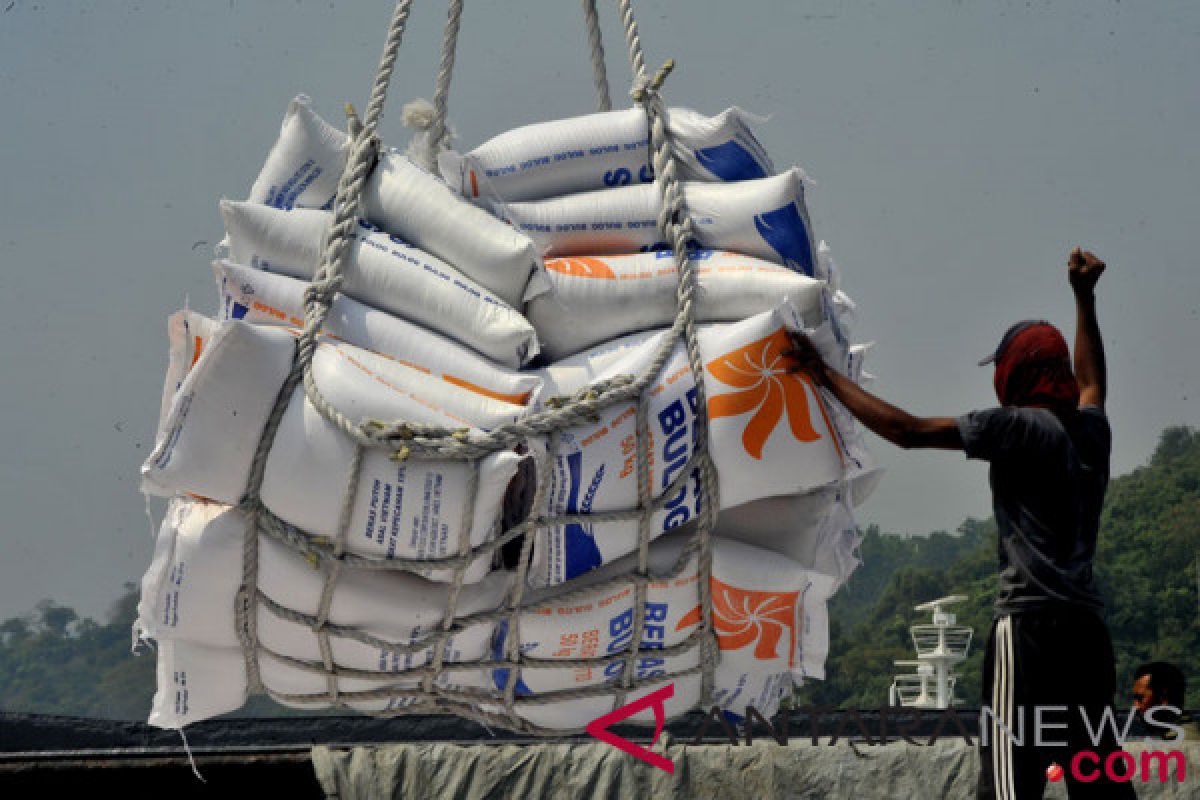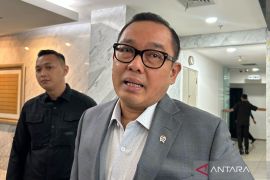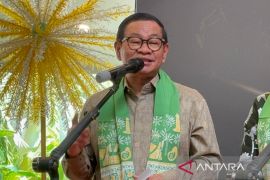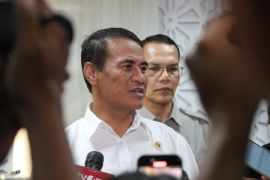"Farmers so far have focused all their attention and dedicated time, energy and mind to providing food for all the Indonesian people," Haryanto said in Purwokerto, Banyumas District, Central Java, on Friday.
He said that the efforts of the government to improve the welfare of farmers were, however, not yet optimal. This is evidence from the fact that until now farmers still make up the largest portion of Indonesia`s poverty rate.
"Rice imports during the rice harvest time will reduce the price of farmers` rice production. Therefore, restricting or stopping rice import is part of the effort to work on the side of the farmers," he said.
Haryanto said that the policy of President Director of state-logistics Board (Bulog) Budi Waseso to hold back imports was the right step, in addition to other efforts to optimize the role of the National Logistics Agency.
Meanwhile, he said, Minister of Trade Enggartiasto Lukita as an assistant to the President who is responsible and handles trade issues, must have very realistic and rational reasons when deciding on rice imports.
"For example, the decision to import rice is only made and the type of rice that is consumed by the community cannot be produced by our farmers," he said.
Nevertheless, he said, what`s certainly needed is to continue to consider siding with and giving appreciation to farmers.
In the meantime, Waseso said that Indonesia will not need to import rice, as it has an adequate supply of the staple commodity to meet demand until June 2019.
The Bulog President Director informed the press in Jakarta on Wednesday (September 19) that he had formed a team involving the Agriculture Ministry, Bulog, and independent experts to analyze the national rice demand and supply.
"The team has recommended that we do not need to import until June 2019. Moreover, Bulog might also not have to release its imported rice stock. We have to maintain it. We should not rely on imports," Waseso, popularly known as Buwas, revealed.
According to Buwas, Bulog`s rice stock is currently 2.4 million tons, and with imports in October, the total rice stocks had reached 2.8 million tons.
Of the total stock, some 100 thousand tons will be utilized for the distribution of rice for the poor (Rastra) that will bring the staple food supply in Bulog`s warehouses to 2.7 million tons by the end of December.
The agency has forecast that the rice end-stock could reach three million tons, with an additional four thousand tons of daily unhusked rice production during the dry season.
"I do not want to continue the polemic on whether we will import (rice), since according to the analysis, we do not need to import. Supply until June 2019 is safe," Buwas pointed out.
He also questioned the authenticity of data on rice consumption in Indonesia that has reached 2.4 to 2.7 million tons per month, which meant rice consumption per capita had reached 130 kilograms per month.
Buwas noted that ambiguous data led to assumptions that rice demand had surpassed its actual demand.
"It means that infants would need the same quantity of rice. This data did not categorize according to age, so the assumption (of rice demand) has reached 2.7 million tons. In its calculation, our production has never met the demand," Buwas added.
Reporting by Sumarwoto
Editing by Andi Abdussalam, Bustanuddin
Reporter: antara
Editor: Heru Purwanto
Copyright © ANTARA 2018












